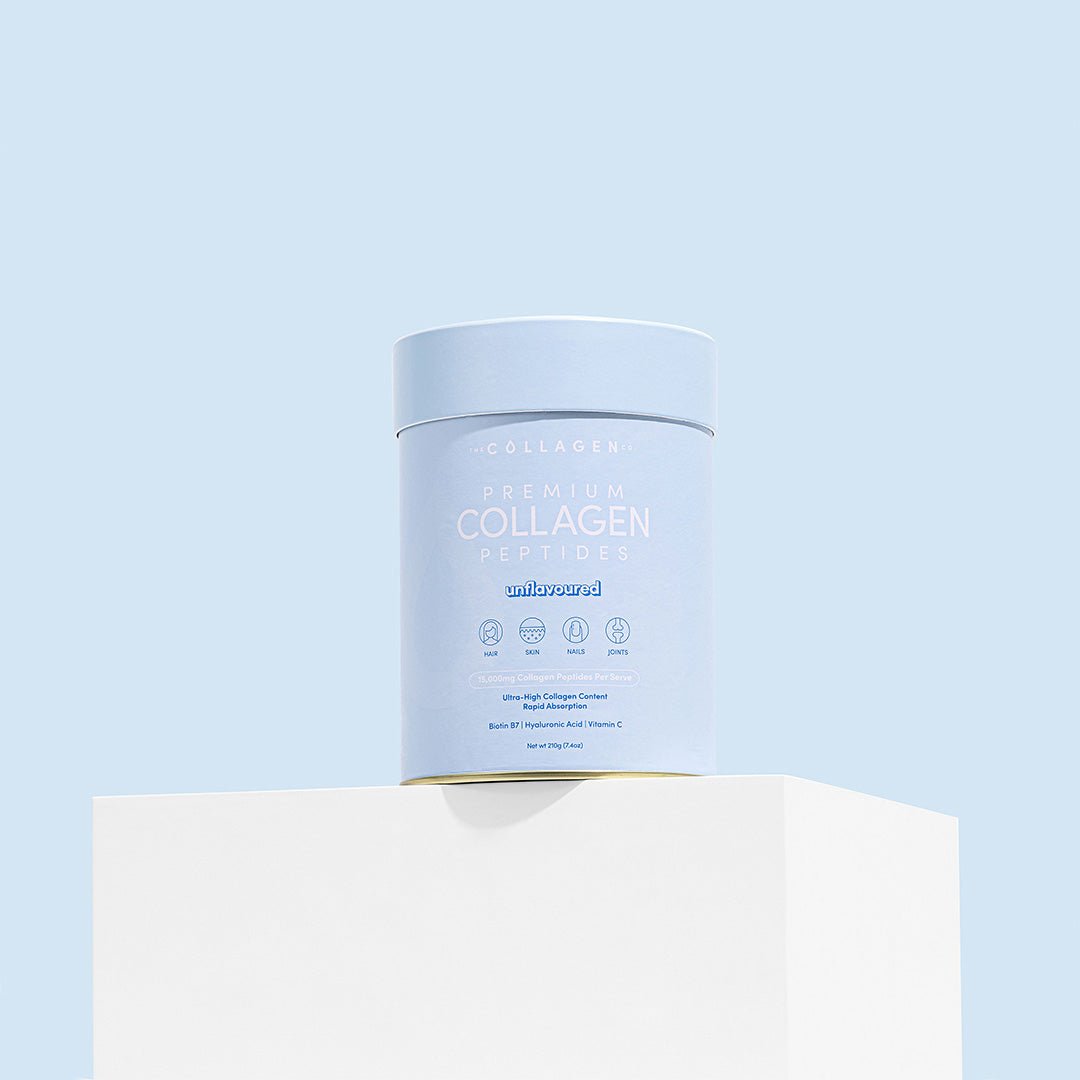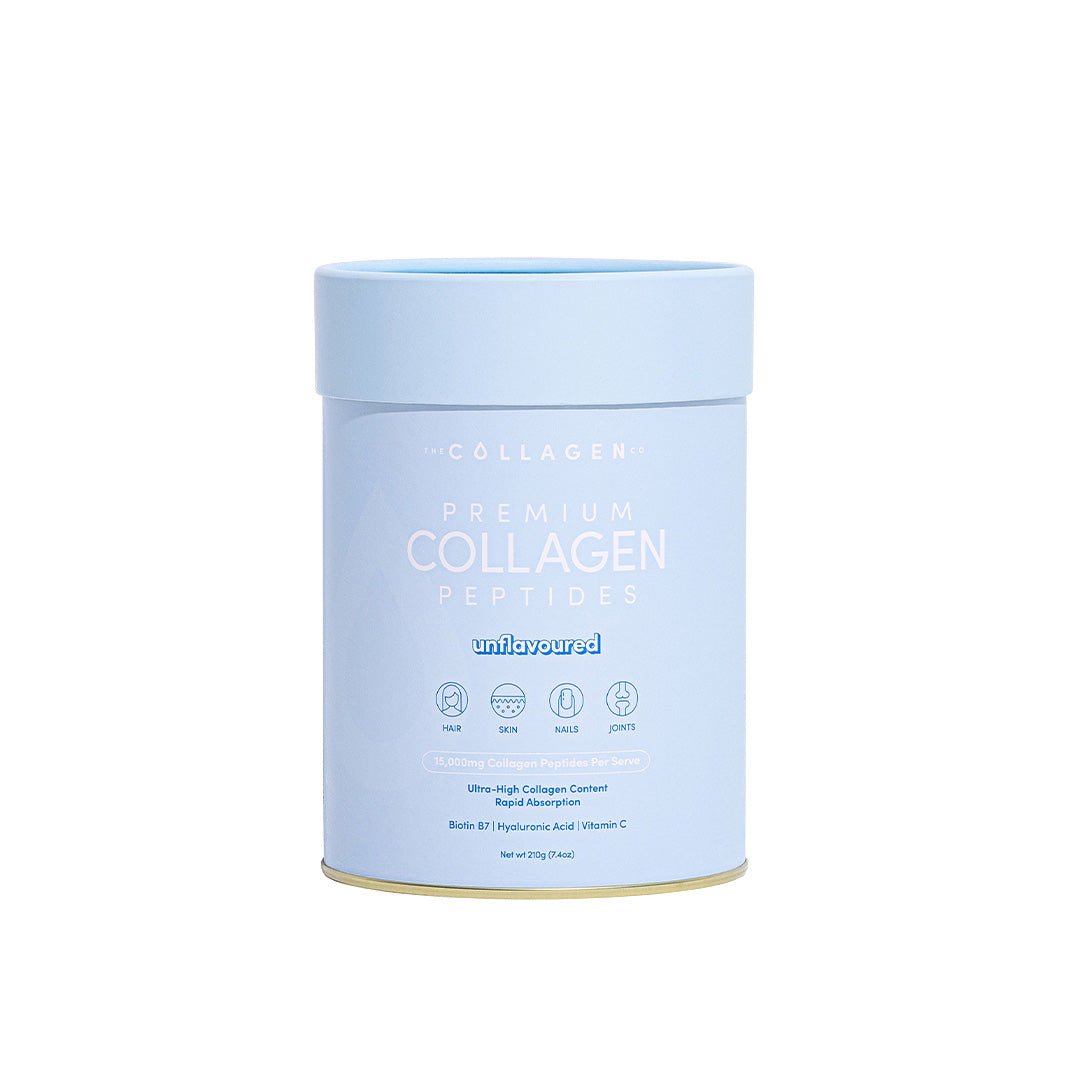What Age Should You Start Taking Collagen?
Posted 17th January 2022
Firm, glowing skin. Mobile, painless joints. Slowed bone loss. With these widely covered health benefits, it’s no wonder collagen supplements are commonly tagged as anti-aging wonders, alongside popular “time-reversers” like antioxidant-stuffed pills, retinol creams, and CoQ10 lotions. Only, the question worth asking here is: “Are collagen supplements only reserved for those who’ve already experienced the much-dreaded quarter-life crisis?” Or, in other words: ideally, how old should you be to start taking collagen? Let’s explore.
So… at What Age Should You Start Taking Collagen?
The short answer? Once you’re past your 20s. Look at the list of (inexhaustive) collagen health benefits once again. Improved skin, joint, and bone health – while the latter two are likely irrelevant to you when you’re still young-ish, the same doesn’t hold for the first benefit. Why? Unknown to you, your body starts producing about 1% less collagen in the skin each year. To understand the importance, some background knowledge on the role collagen plays in your skin would help.
So, let's cover that. Here's what you need to know: collagen is the most important structural protein in your skin. It makes up a whopping 80% of the skin and works together with another protein called elastin that keeps the skin, well, elastic (i.e., supple and "bouncy"). One way to visualise how collagen supports skin health is to think of them like ropes. When you're young, this rope remains taut. But as you age, the ends start to fray – much like the shoulder straps on your favourite daily tote bag.
And this, unfortunately, means you begin losing structural integrity in the skin. Meet, wrinkles and fine lines. Reminder: yes, this process starts as soon as you hit the 20s mark. So, this is where collagen supplements come in. You can negate the natural slowdown in your body’s collagen production by supplementing with it. Take this 2019 systematic review (of 11 separate studies) published in the Journal of Drugs in Dermatology, for instance. It found data to support that collagen supplementation could boost collagen production and increase skin elasticity – promoting a firmer, youthful looking complexion.
Why Does Collagen Decrease with Age?
At this point, this much is clear: for benefits in terms of skin elasticity, firmness, and hydration, you’d do best by incorporating collagen supplements into your daily routine once you hit the 20s-milestone. Still, one question weighs heavily on your mind. Why the slowdown in collagen production? Is it an inevitable process? Or is there something you could do about it (other than taking collagen supplements once you reach age 20)?
Well, here's the thing: that 1% slowdown in collagen production? That's a normal aging process, much like how hairs tend to turn white as the years go by. However, what's not commonly mentioned is that various lifestyle factors can accelerate your body's collagen loss. An example of this is excessive, unprotected exposure to UV rays. The result of this is an overproduction of free radicals – highly unstable molecules on a mission to steal electrons from anything it meets, including healthy fibroblasts (collagen-producing skin cells). This process, known as oxidative damage, causes exaggerated loss of collagen, contributing to deep wrinkles. Other factors that may ramp up collagen breakdown rates include smoking, alcohol misuse, chronic stress, and exposure to environmental pollutants (e.g., smog).
This, in turn, explains why prevention is key to maintaining a youthful complexion. While you can’t stop that natural 1% decline in collagen production yearly, you can take steps to mitigate further losses by being mindful of sun protection, cutting down on tobacco and alcohol use, managing stress levels, and reducing exposure to environmental pollutants including artificial blue light. Oh, and let's not forget supplementing with collagen, of course.
Takeaway
Your body's collagen production naturally decreases with age – starting as early as your 20s. So, naturally, you'd want to attenuate its resulting aging effects on your skin through consuming quality, effective collagen supplements (just like the ones at The Collagen Co!)

